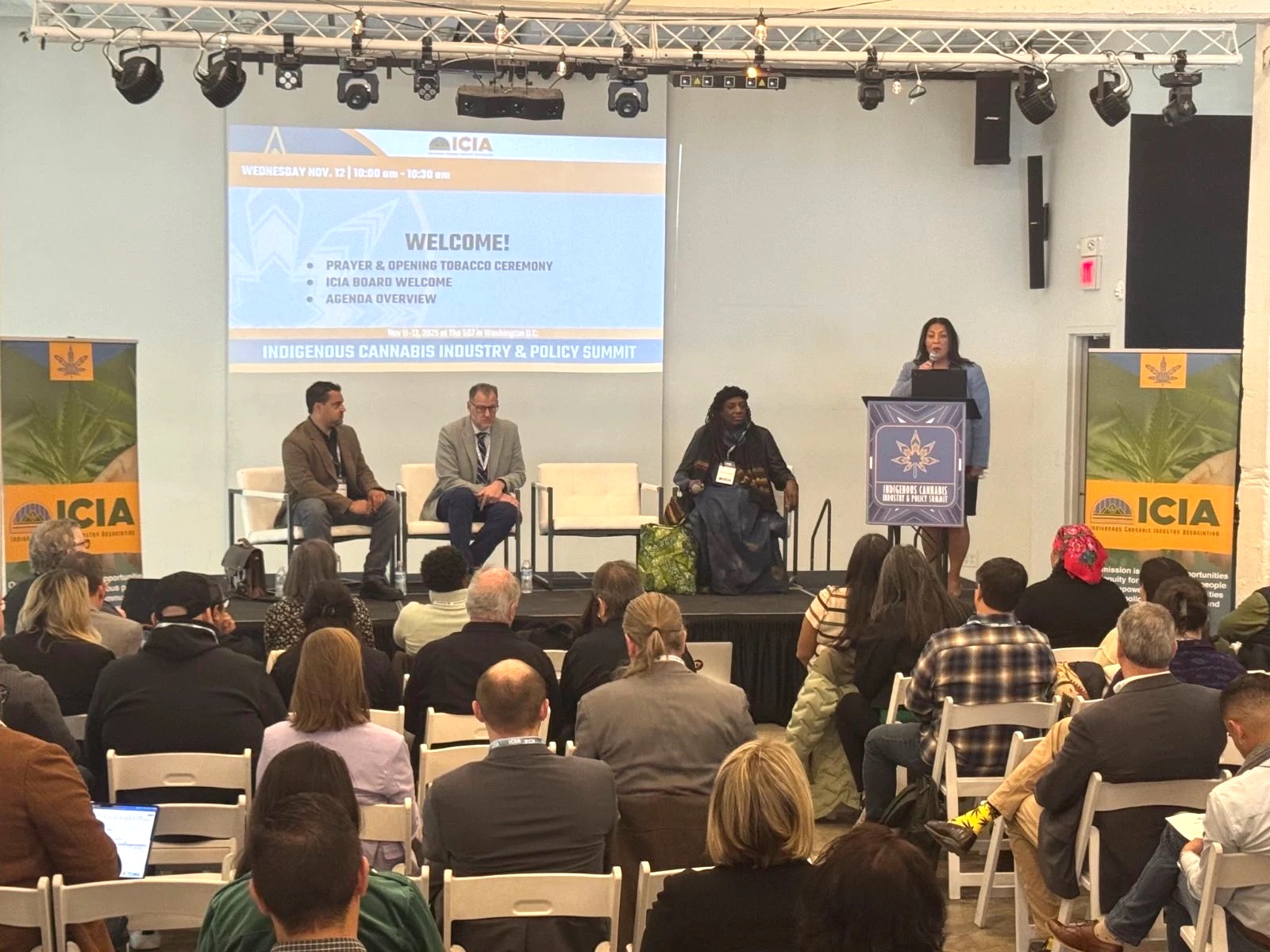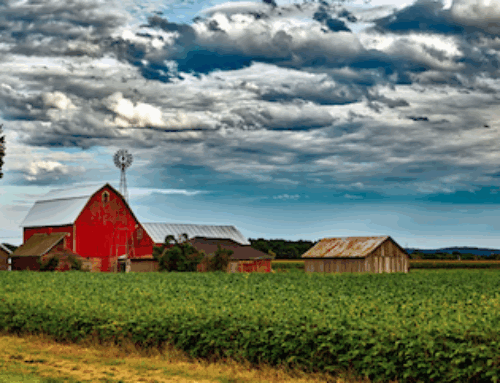Indian Country cannabis ‘has to evolve’ ahead of impending federal regulation and ban
November 16, 2025

- Details
- By Chez Oxendine
- Food | Agriculture
-
November 16, 2025
A federal hemp ban tucked into a government funding bill threatens to upend tribal cannabis operations across the country, forcing Native businesses to navigate new restrictions within a year.
Congress included the hemp ban into the Continuing Appropriations and Extensions Act of 2026 — a continuing resolution that ended the 43-day government shutdown and funds the government through Jan. 30, 2026. The measure redefines hemp to exclude most intoxicating cannabinoid products and sets a one‑year grace period before enforcement begins in November 2026.
Native cannabis advocates, speaking at a Washington, D.C. summit by the Indigenous Cannabis Industry Association, warn the regulation could change the path of an evolving industry — or stifle it altogether.
Jonathan Miller, a policy analyst with advocacy group US Hemp Roundtable, told attendees that even products with trace amounts of THC could be considered in violation of federal law under the new definition. He pointed to tinctures with 0.1 milligrams of THC per serving, which would still exceed the federal cap once multiplied across 30 servings.
“Only products that basically are zero are going to qualify for this,” Miller said. “We rely on these products. They don’t get us high. These are for our health and wellness.”
They’re also part of a burgeoning industry: Tribes across multiple states have launched dispensaries, grow operations and product lines utilizing cannabis plants, per prior Tribal Business News reporting. Those businesses now face a looming, complicated tangle of tribal, state and federal regulations that could stymie an otherwise growing market.
Miller emphasized that the fight will not be confined to Washington. State legislatures may adopt the federal rules quickly, and farmers need certainty before planting hemp crops in the spring. He cited Rep. Morgan Griffith (D-Va.), who is preparing legislation to regulate rather than ban hemp products, and Oregon Sens. Ron Wyden and Jeff Merkley, who plan to reintroduce supportive bills.
At the summit, a panel of cannabis industry experts discussed the implications of the federal hemp ban and tribal cannabis operations. Attorney Samantha Skenandore of Madison, Wisc.-based Skenandore Wilson LLP moderated the panel.
The panel included Cheryl Marie Paul, a cannabis attorney; Jason Tarasek, a Minnesota attorney with Vicente LLP; and Keith Anderson, a federal Indian law specialist focused on tribal economic development.
Paul framed cannabis policy as a human rights issue. She described how sacramental users in Indigenous communities have faced persecution, including arrests and forced cutting of hair. She argued that legalization has not resolved these harms.
“The fact that sacramental use is not recognized is a human rights violation, and it’s been allowed to continue despite the legalization of cannabis,” Paul said.
She called for reparative justice and protections such as home cultivation and chain‑of‑custody control. She emphasized that dispensary cannabis often fails to meet ceremonial standards, forcing communities to cultivate outside legal frameworks and exposing them to risk.
Her remarks connected cannabis to broader movements for food sovereignty and sustainability, noting that Indigenous communities must own their supply chains to ensure cultural and economic independence.
“If you cannot get ceremonially pure cannabis in a dispensary, then you’re cultivating and going through the entire supply chain outside of the legal framework, which puts you in jeopardy,” Paul said. “Home cultivation is essential, especially for faith‑based users at every stage.”
Tarasek shifted the focus to Minnesota, where legalization has been driven by legislative action rather than ballot initiative. He recalled lobbying efforts that led to hemp‑derived THC beverages being legalized in 2022, even under a Republican‑controlled Senate. He warned that federal restrictions now threaten livelihoods built around those products.
He highlighted Minnesota’s unique compacts, which allow tribal nations to operate cannabis businesses off tribal land. Ten of the state’s eleven tribal nations are entering compacts, creating what he described as a “tribal cannabis chamber” of regulatory bodies.
Anderson provided perspective from California, where tribes have operated cannabis markets independently for a decade. He explained that tribes resisted compacts that imposed revenue sharing and state regulatory control, instead building their own systems for cultivation, manufacturing, and retail.
He noted that the trend in California is toward tribal member empowerment, with smaller‑scale cultivation replacing large government‑run facilities. He argued that empowering members as sole proprietors is a more sustainable way to distribute economic benefits.
The overarching message was clear, according to the ICIA speakers: Tribal cannabis is not simply a profit-driven industry; it’s a vehicle for economic development and sovereignty. Minnesota’s compacts show how tribes can expand their reach through collaboration, while California demonstrates how tribes can build independent systems.
But those systems and others need to be prepared to evolve ahead of impending federal regulation changes, and fast, the speakers said.
“If you can’t be nimble within cannabis, you will not survive,” Tarasek said. “If you’ve been in this long enough you’ve realized that.”
Search
RECENT PRESS RELEASES
Related Post




